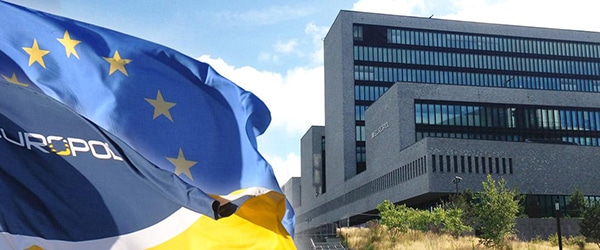Europol’s New Mandate

On 1 May 2017, the new Europol regulation (Regulation (EU) 2016/794), which was adopted by the European Parliament on 11 May 2016, came into force, taking effect in all member states. This regulation updates Europol’s powers and enables it to step up efforts to fight terrorism, cybercrime and other serious and organised forms of crime.
Based in The Hague, in the Netherlands, Europol assists national authorities with exchange of information, intelligence analyses and threat assessments. The new regulation establishes Europol as the European Union Agency for Law Enforcement Cooperation.
At a meeting in the Grandmaster’s Palace in Valletta on 1 May 2017, Maltese Minister for Home Affairs and National Security, Carmelo Abela, addressed Europol’s Management Board, where he discussed the evolving security threats to the European Union. He said:
The security challenges Europe is facing today have forced a reconsideration of how the European Union manages security concerns and where it focuses its energies. Thus, the coming into force of a new legal framework for the EU’s law enforcement agency, Europol, today 1st of May 2017 is not only timely but also pivotal; it is truly a step forward for European policing and security.
The new regulation will increase Europol’s capabilities and will make it easier for it to set up more specialised units, with the capacity to respond immediately to emerging terrorist threats and other forms of serious and organised crime, similar to the European Counter Terrorism Centre (ECTC) and the European Union Internet Referral Unit (EU IRU). The new regulation will improve Europol’s ability to act as the EU’s information hub in the fight against terrorism and serious organised crime. It also increases the Agency's accountability and establishes that the supervision of Europol’s data protection systems will be carried out by the European Data Protection Supervisor.
The entry into force of the new regulation was welcomed by Europol’s Director, Rob Wainwright, who said: “The new powers will improve Europol’s ability to support EU Member States in the fight against terrorism and organised crime at a time when Europe faces many challenging security threats.”
Denmark and Europol
In advance of Europol’s new mandate, a Joint Declaration by the Presidents of the European Council and the Commission and the Danish Prime Minister was signed on 29 April, 2017, which outlined the operational arrangements agreed in order to minimise the negative impact of Denmark's departure from Europol on 1 May 2017. Last December, the Danish people had voted against remaining in Europol when its mandate changed in May 2017, so a compromise had to be struck. This agreement with Denmark, which is not a fully-fledged member of Europol, will allow for the sharing and exchange of vital operational data with the agency, as long as Denmark remains in Schengen. Without this agreement, there was a risk that Denmark could find itself in a position of being unable to share operational data with Europol. Any such impediment to co-operation could have potentially led to serious intelligence and information gaps, putting the EU’s security at risk.
Commissioner for the Security Union, Julian King, remarked on the huge efforts led by President Juncker, to broker a bespoke solution with Denmark to allow for a sufficient level of cooperation, including the exchange of operational data and the deployment of liaison officers. He noted the advantage of this solution, which is “fully in line with European data protection rules” and commented that “Denmark will have a unique status which will allow for much closer ties with Europol without amounting to full membership.”
Image Europol
